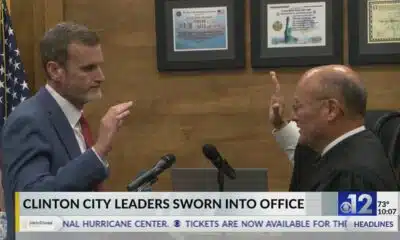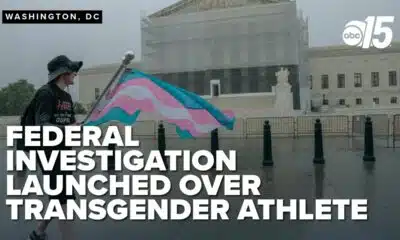Magnolia Tribune
Contributions to sitting Public Service Commissioners raise questions
The Mississippi PSC has a complicated history with gifts and campaign contributions dating back over 30 years.
By Mississippi law, Public Service Commissioners are required to adhere to strict guidelines regarding direct and indirect gifts and campaign contributions, specifically related to any person acting in any respect for telecommunications, electric, gas, water and sewer utilities they regulate. While these guidelines make it more difficult for Commissioners to raise money in their campaign coffers, the prohibitions were enacted to ensure the public’s interests were at the forefront of every decision while tamping down outside influence.
Over the years, some Public Service Commissioners have played loose with the law, while others have crossed the line resulting in resignations and jail time. Donations made to two Commissioners in the current three-man crop have raised questions.
Untangling an Intentionally Complicated Web
The Mississippi Public Service Commission (PSC) has had a contractual relationship with Michael Best & Friedrich LLP out of Milwaukee, Wisconsin since Entergy joined the Midcontinent Independent System Operator, or MISO, in 2013, per the executive director of the PSC.
MISO is an independent, not-for-profit, member-based organization focused on managing the flow of high-voltage electricity across 15 U.S. states and the Canadian province of Manitoba, facilitating the energy market with more than $40 billion in annual transactions, and planning the grid of the future. According to MISO, 45 million people depend on them to generate and transmit the right amount of electricity every day.
As part of their contract with the PSC, Michael Best & Friedrich advises on matters related to Entergy’s membership in MISO. This is often done through seeking to align the interests of the various parties. Michael Best & Friedrich also represents the PSC at the Entergy Regional State Committee (ERSC), the Organization of MISO States (OMS), and the Federal Energy Regulatory Commission (FERC).
Southern Renewable Energy Association’s Executive Director Simon Mahan described the relationship between the PSC, its consultants including Michael Best & Friedrich, and Entergy in his June 2021 comments submitted to the PSC as follows:
MS PSC staff and consultants also directly coordinate with Entergy to develop strategy and positions at MISO through the Entergy Regional States Committee Working Group. The ERSC Working Group is required by its bylaws to host public meetings and post its minutes; however, no public records exist for the Working Group other than the records of invoices collected and provided by EPI. As an independent organization, the ERSC has its own budget paid for by MISO South states like Mississippi, but it appears to be an unnecessary and costly duplication of the MISO OMS at best, and at worst, a secret coordination effort between Entergy and MISO South regulatory staff.
The three-man Mississippi PSC voted unanimously to continue the relationship with Michael Best & Friedrich and authorized a new contract (shown at the bottom) most recently in May 2022.
As conveyed in the contract, the PSC and their representatives direct the Michael Best & Friedrich firm as to what information the Commission needs from the organizations and how to best represent the PSC’s interests. William (Bill) Booth, who leads the firm’s FERC practice, has been the PSC’s contact and is known to be one of the most frequent interjectors at MISO meetings.
The contract between the PSC and Michael Best & Friedrich states that the PSC will pay the firm $500 per hour for attorneys and $150 per hour for paralegals. Major filling fees and charges for outside services are to be sent to the PSC for payment.
However, according to PSC Executive Director Katherine Collier, fees for work performed by Michael Best & Friedrich are not paid through the Commission’s appropriated state budget. She told Magnolia Tribune that the firm is paid by Entergy, a regulated PSC entity, “in accordance with Mississippi law and Entergy’s Commission approved tariff.”
This means that the PSC Commissioners are voting on the company’s rate passed on to utility customers that is then used, at least in part, to pay for the consulting and legal services of Michael Best & Friedrich.
Given the flow of the payments to Michael Best & Friedrich for their services as billed to the PSC and in turn paid through funds collected from Entergy, the arrangement would appear to indicate an indirect relationship between the firm and the regulated utility, as their payment is reliant on Entergy.
Therein lies the question for two of the three sitting Public Service Commissioners in this intentionally complicated web.
While Mississippi Code § 77-1-55 allows the PSC to contract with firms such as Michael Best & Friedrich and have their invoices paid through regulated utility rates, Mississippi Code § 77-1-11 states that it is unlawful for a sitting Public Service Commissioner from knowingly accepting:
…any gift, pass, money, campaign contribution or any emolument or other pecuniary benefit whatsoever, either directly or indirectly, from any person interested as owner, agent or representative, or from any person acting in any respect for such owner, agent or representative of any common or contract carrier by motor vehicle, telephone company, gas or electric utility company, or any other public utility that shall come under the jurisdiction or supervision of the Public Service Commission.
On at least seven occasions over the past three years, Michael Best & Friedrich has donated to the campaigns of both Brandon Presley, the incumbent Democrat representing the Northern District, and Brent Bailey, the incumbent Republican representing the Central District.
Commissioner Presley took in $10,000 from Michael Best & Friedrich in February 2020, $15,000 from the firm along with $5,000 from Booth in December 2021, and $10,000 from the firm and $5,000 from Booth in December 2022.
Commissioner Bailey reported $5,000 in contributions from the firm in May 2023.
Another associate with Michael Best, Denise Bode, who ran the firm’s federal lobbying practice, also donated $500 to Presley in 2020. Bode has since left the firm.
Booth also contributed to Presley in 2015 for $2,000 and in 2019 for $2,500, with the firm also donating $8,000 and $10,000, respectively, in those same years.
Magnolia Tribune sought comment from Booth as representative of Michael Best & Friedrich, but no response has been received.
According to a review of campaign finance reports, Southern District Commissioner Dane Maxwell, a Republican and current chairman of the Commission, has not reported a donation from the firm or its associates.
Response from Entergy
For their part, Entergy Mississippi told Magnolia Tribune that the company complies with Mississippi Code § 77-1-55, which authorizes the Mississippi Public Service Commission to hire law firms and specifies their payment through utility rates.
The law states in subsection 3, in part:
…The executive director or the chairman of the commission, as applicable, shall requisition the applicable public utility to make the requisite payments to such consultants. The commission shall allow the utility to recover both the total costs the utility incurred under this section and the carrying charges for those costs through a rate rider established to recover the costs incurred and carrying charges incurred. Such rider shall include a true-up provision to ensure actual recovery of costs paid or otherwise incurred by the utility.
Entergy did not elaborate on the extent of the contact and coordination the company has with Michael Best & Friedrich or its associates.
RFP for Similar Legal Services Prohibits Gifts
The Public Service Commission issued a Request for Proposals (RFP) for legal services related to similar terms as that of the contract with Michael Best & Friedrich in June 2021, this time from Mississippi-based law firms. The RFP stated in reference to Mississippi Code § 77-1-55:
Pursuant to the above-referenced authority, the Commission requests proposals from qualified, Mississippi-based law firms to assist the Commission in the duties contemplated in Mississippi Code Ann. § 77-1-55. The legal services contemplated in this RFP may assist and supplement the legal services to be performed for the Commission regarding representation on and at the Entergy Regional State Committee (“ERSC”), the Midcontinent Independent System Operator, Inc. (“MISO”), the Organizations of MISO States (“OMS”), as well as the Federal Energy Regulatory Commission (“FERC”), and cyber security of the power grid.
The RFP goes on to explicitly state in the “Legal Requirements” section:
Applicants shall not offer any gratuities, favors, or anything of pecuniary value to any Commissioner or any Commission staff member for the purpose of influencing this selection. Any attempt by an applicant to influence the selection process by any means other than disclosure of qualifications and credentials through the proper channels, will be grounds for exclusion from the selection process.
No such RFP exists related to the most recent contract renewal of Michael Best & Friedrich, based in Wisconsin, per the PSC.
Other Donations that Raise Questions
Magnolia Tribune has previously noted the direct campaign contribution made to Commissioner Presley’s gubernatorial campaign from CenterPoint Energy’s President and Chief Operating Officer Jason Wells on April 22, 2023. CenterPoint is one of three gas companies under the purview of the PSC.
The $500 donation from Wells is reflected in the Presley campaign’s total funds received for the January to April 2023 reporting period. Three days later, the Presley campaign refunded Wells’ contribution in full. That refund is shown in the campaign’s expenditures.
Whether the refund absolves Presley from the liability and the ultimate penalty associated with such a direct violation of Mississippi Code § 77-1-11 is unknown as that determination is left to the Attorney General or a local prosecutor.
In addition, the Sierra Club through their counsel Robert Wiygul often intervenes in cases before the PSC, arguing for action by Commissioners related to regulated utilities, just as it did in the challenge to the Mississippi Power Company’s Kemper Project.
As Commissioner, Presley has routinely taken funds from both the Sierra Club and Wiygul over the years, some of which include Sierra Club donations of $5,000 in 2015, $5,000 in 2018, $5,000 in 2019, $10,000 in 2020, $10,000 in 2021, and $45,000 in 2023, along with a donation from Wiygul of $5,000 in 2023.
Wiygul also donated $500, and the Sierra Club contributed $20,000 to Commissioner Bailey in 2019.
Commissioner Maxwell’s reports show no donations from either Wiygul or the Sierra Club dating back to his first run for PSC in 2019.
Also littered throughout PSC Commissioner campaign finance reports over the years are donations from organizations, lobbyists, and persons who advocate for increased solar energy production and usage.
Issues involving solar energy have been hotly debated by the Commission in recent years, primarily related to the PSC’s 2022 adoption of the new Net Metering and Interconnection Rules meant to increase self-generating renewable power.
The new rules were adopted by a 2-1 vote, with Presley and Bailey voting for the update and Maxwell voting against. At the time, Commissioner Maxwell cautioned against the move, stating that his main concern was the “masses paying extra for the benefit of a few.”
“I cannot support a policy that forces Entergy or Mississippi Power Company customers who either choose not to, or cannot afford to, put solar panels on the roofs of their homes to pay more on their electric bills to finance their neighbor’s investment,” Commissioner Maxwell said.
After push back from both Entergy and Mississippi Power, the PSC revisited the rules but, in a similar 2-1 vote, ultimately adopted a revised update that went into effect in January 2023.
What Commissioners Say about the Donations
Magnolia Tribune sought comment from all three sitting Public Service Commissioners related to the campaign contributions outlined above, asking each if they believed accepting the donations from Michael Best & Friedrich, the Sierra Club, Wiygul and the solar-related entities complied with the law pertaining to PSC Commissioners and entities under the purview of the PSC.

Commissioner Presley’s gubernatorial campaign communications director Michael Beyer did not specifically answer the questions posed to him but instead chose to redirect the issue in a way to attack Governor Tate Reeves. Beyer’s response stated:
Tate Reeves is lying to distract from his record of being the most corrupt governor in Mississippi history. Unlike Reeves, Brandon Presley will not face questions in a federal investigation about his role in allowing criminals to funnel millions of taxpayer dollars meant for working families to his personal trainer, campaign contributors, and celebrity athlete friends to spend on a volleyball stadium, steak dinners, and luxury cars and then covering his tracks by firing the lead attorney investigating the scandal because it was getting too close to his buddies.
Presley’s campaign has sought to tie Governor Reeves to the Mississippi Department of Human Services welfare scandal despite Reeves not being Governor at the time. Reeves has not been implicated or charged with any wrongdoing.
Over the past few weeks, Presley has been stumping across the state “declaring war on corruption” in state government. He has said “it all starts with sanitizing an infected lobbying system” while “curbing the influence of lobbyists and giant corporations.”
Commissioner Bailey, on the other hand, did respond to the questions asked of him, saying the donation in question from Michael Best & Friedrich “absolutely complies with Mississippi Code § 77-1-11.” He said the firm “solely represents the Mississippi Public Service Commission and is compensated within the directives and processes outlined in Mississippi Code § 77-1-55 and Entergy Mississippi LLC’s Power Management Rider Schedule PMR-14.”
As for the donations from the Sierra Club and solar-related entities, Commissioner Bailey said he gives “equal consideration to all perspectives, just as I swore to do upon entering office.”
“My campaign has received and accepted contributions from individuals, entities and organizations from across the political and ideological spectrum,” Bailey said.
Commissioner Maxwell declined to comment.
Who is to Look into such Matters
Magnolia Tribune reached out to lawmakers in both chambers regarding the campaign contributions in question, asking if they were aware of the questions surrounding the donations and if it raised concerns. To a person, all were disturbed by the donations and wanted to delve deeper into the reports.
State Rep. Brent Powell, the House Energy Committee chairman, was one lawmaker who said it definitely gives him pause.
“Indirectly or directly, they’re not supposed to benefit from it, so if that’s ultimately the case, then I think probably money should be returned,” Powell said.
As for the donations from the Sierra Club and solar companies, Powell said legislators have been looking into those contributions already. He said lawmakers are considering possible changes to the law to explicitly include solar-related entities among those that are prohibited from donating to PSC Commissioners.
“It’s something we’ve been looking at and we may have to adjust the regulations to accompany that since the solar industry is relatively new,” Rep. Powell said.
With respect to campaign finance reporting, the Secretary of State’s office has previously noted that their role is limited to accepting the filing of campaign finance reports and compiling a list of all candidates for statewide or legislative office who have failed to file a campaign finance disclosure report.
This leaves any potential action related to campaign contributions that raise questions to be investigated by either the Attorney General’s office or a local prosecutor. Magnolia Tribune contacted the Attorney General’s office specifically regarding the donations outlined above from Michael Best & Friedrich and their associates. The office had no comment at this time.
However, there is precedent for the Attorney General’s office in Mississippi to investigate and then prosecute such matters, if evidence warrants. Former Democratic Attorney General Mike Moore was a central figure in two incidents in the late 1980s and early 1990s that resulted in Commissioners being indicted and ultimately sentenced to prison.
PSC has a Complicated History with Campaign Contributions
The Mississippi Public Service Commission is no stranger to questionable gifts or money changing hands between Commissioners and regulated entities, contractors, or those with an interest before the board.
In 1988, two Public Service Commissioners were indicted on federal bribery and conspiracy charges related to a $165 million lawsuit settlement between Mississippi Power & Light Co. and supplier United Gas Pipeline, which was followed by the PSC’s approval of a major rate hike in 1985.
A 1988 article from the Associated Press on the indictments stated:
Commissioner D.W. Snyder and former commissioner Lynn Havens, who resigned his post Jan. 11, were named in the 26-page, 19-count indictment. Nielsen Cochran, the third public service commissioner, was not charged.
Also indicted were Travis Ward, 68, a Dallas oilman whose interests include the exercise equipment company Nautilus Sports-Medical Industries Inc., and businessman Thurston Little, 68, of Corinth, Miss., officials said.
On Sept. 20, 1985, the three-member commission approved a $165 million settlement of a 13-year-old breach of contract lawsuit filed by Mississippi Power & Light Co. against United Gas Pipeline of Houston, an MP&L supplier.
According to the indictment, Havens received $50,000 from Ward and Snyder got $16,000 from Little, Ward’s alleged intermediary, for telling MP&L officials they must settle the lawsuit to gain approval for the rate hike.
Ward, Havens, Snyder and Little were charged with one count each of conspiracy; Ward was charged with 13 counts of travel in interstate commerce to bribe public officials; and Havens and Snyder were each charged with three counts of accepting bribes.
Havens resigned his seat in January 1988 and pled guilty in June 1989 on the conspiracy charges after serving on the PSC for 8 years. Snyder was later convicted and resigned, also in 1989, after serving for 25 years.
Another incident occurred in 1992 at the PSC when Commissioner Sidney Barnett was arrested just six weeks after taking office. He was charged with 15 counts of accepting campaign contributions from companies the commission regulates.
The Associated Press article from May 1992 states:
Barnett, 50, an attorney, maintained his innocence at the time. But within days of his arrest, six utilities and companies came forward admitting to the contributions, state Attorney General Mike Moore said.
Barnett faced a maximum penalty of 15 years in prison and $75,000 in fines. He entered his guilty plea before Judge James Thomas in Harrison County Circuit Court.
Campaign worker Joe Leonard, who was charged with aiding in collection of illegal contributions, also pleaded guilty Thursday. He was sentenced to one year of probation.
Current state law, outlined in Mississippi Code § 77-1-11 (1), says any person found guilty of violating the provisions of this subsection shall immediately forfeit his or her office or position and shall be fined not less than $5,000.00, imprisoned in the State Penitentiary for not less than one (1) year, or both.
#####
Read the PSC contract with Michael Best & Friedrich below.
The post Contributions to sitting Public Service Commissioners raise questions appeared first on Magnolia Tribune.
…
By: Frank Corder
Title: Contributions to sitting Public Service Commissioners raise questions
Sourced From: magnoliatribune.com/2023/05/30/contributions-to-sitting-public-service-commissioners-raise-questions/?utm_source=rss&utm_medium=rss&utm_campaign=contributions-to-sitting-public-service-commissioners-raise-questions
Published Date: Tue, 30 May 2023 14:00:26 +0000
Did you miss our previous article…
https://www.biloxinewsevents.com/biden-mccarthy-reach-debt-ceiling-deal/
Magnolia Tribune
Staring mortality in the face at Christmas
My friend Jarrod is dying after an eight year battle with cancer. He’s lived a life worth celebrating, one that has drawn people to Christ.
I was going about my business this week when I received a text that stopped me in my tracks. A college friend was being moved to hospice care.
Jarrod Egley was diagnosed with colorectal cancer in early 2017. In the fall of 2018, tests revealed the cancer had spread to his lungs and Jarrod’s cancer was classified as Stage IV.
For almost eight years from the date of the original diagnosis, he’s fought. Through surgeries, radiation, endless rounds and cycles of chemotherapy, and experimental immunotherapies, he’s fought.
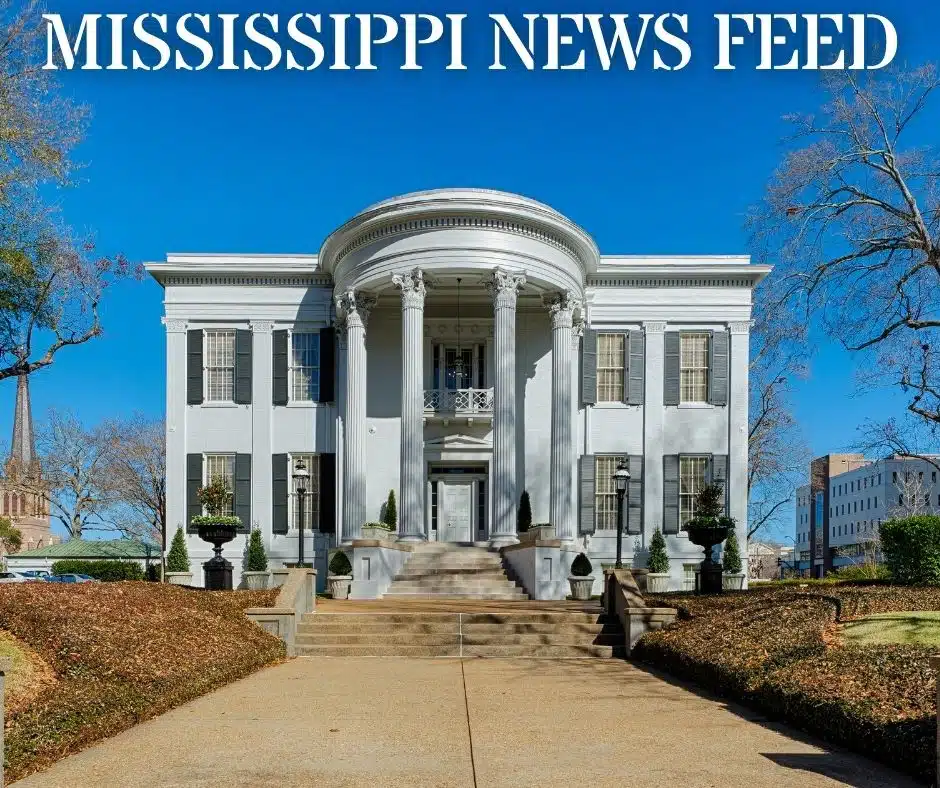
Last year, I flew out to California and spent some time with Jarrod and his wife, Emily. We sat outside one night. He acknowledged to me that it was not a question of ‘if’, but ‘when’ the cancer would claim his life. I told him I was sorry, because what else is there to say?
We talked about our faith, about the trials of Job, about Jacob wrestling with God, about Paul’s affliction. But mostly we reflected on our time together in school, on the good things, and the mundane things, that happened since.
Jarrod and I met at Tulane University. One Sunday morning in the Spring of my freshman year, I rose from my dorm room bed, dressed, and began walking down Saint Charles Avenue in New Orleans with no particular agenda. I walked until I came across First Baptist Church and the thought flickered in the vacuous recesses of my brain to enter.
Some would say it was a lark. The Calvinist in me says providence. The walk that morning changed the trajectory of my time at Tulane and my life on the whole. Intervarsity Christian Fellowship and the Baptist Collegiate Ministry became central to my life and put me in regular league with Jarrod. I met him first at the BCM and we ultimately ended up attending church together.
Jarrod was a faithful servant on and off campus. He helped organize a group of us that would weekly make our way down to the Esplanade seawall on the backside of the French Quarter to feed the homeless. On Friday nights, he could be found at chapel with a small cadre of students foregoing Bourbon Street for early 2000s worship music.
Jarrod was a loyal friend in those years. Never rude or biting. Not prone to an insult for an easy laugh. Persistently encouraging. An engineering student, his mind worked linearly and was oriented to problem solving. There were never a lot of wasted words — always a lot of deliberative questions when he disagreed or did not understand a point. He exhibited intelligence, empathy, and the kind of moral conviction that sets someone apart.
He also had a wry and dry sense of humor and a penchant for beating people at Madden football. He was fair-to-midland on the ultimate frisbee pitch. Along the way, there were crawfish boils, Mardi Gras outtings, poorly attended Tulane football games, and more than a decent amount of wing eating.
After college, I lost touch with Jarrod. He moved back to his home state of California. He got married to his college sweetheart, who could not have anticipated her husband’s journey, but has been a steady and constant helpmate throughout. Jarrod became a very successful engineer and a bourbon connoisseur. One of his bucket list trips took him to Kentucky, where he got to meet and became friends with bourbon “Hall of Famer” Freddie Johnson of Buffalo Trace acclaim.
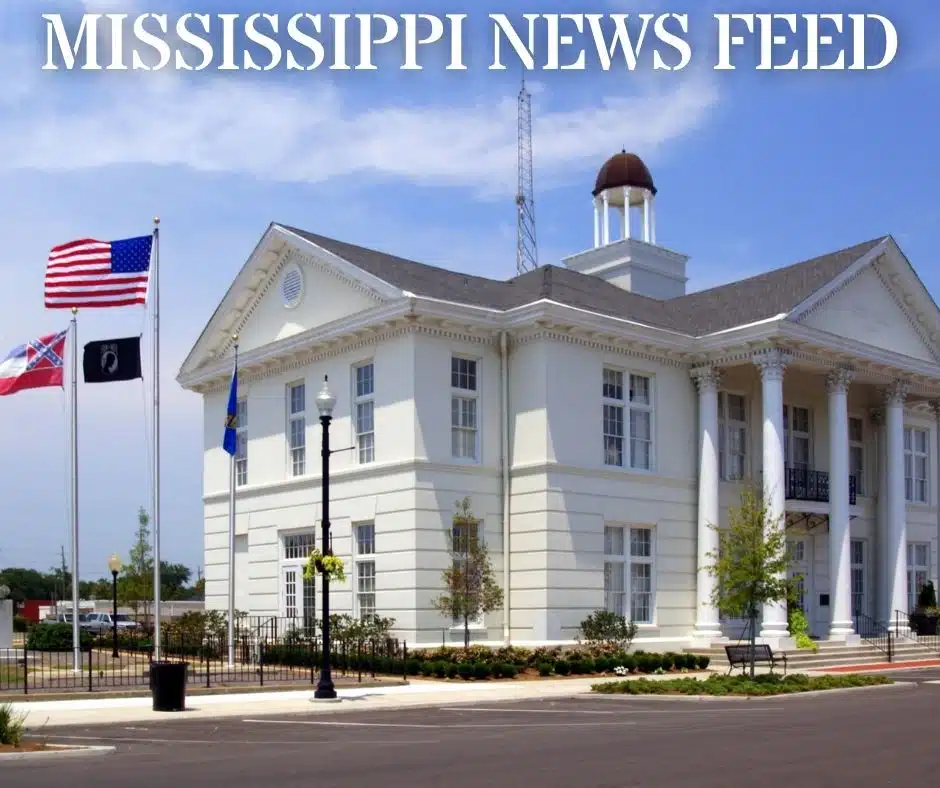
Sitting in his backyard nearly 20 years after graduating from Tulane, I saw many of the same qualities I had grown to admire when we were students together. I saw a husband who doted on and supported Emily’s passions. But I also saw someone whose body had been beaten to hell and back, who was tired, and who, like Jacob, had been wrestling with God. We quickly fell back into friendship, which perhaps is the mark of good friendship.
We all have aspirations in our youth — for the kind of spouse or parent we might be, for what we might accomplish, for what we might experience. Along the way, dreams are satisfied, modified, or they die on the vine. The clock inevitably works against all of us. That night in Oceanside, California, Jarrod, a numbers guy, saw that time was not on his side. He believed, as we all would, that he still had more to give, more impact to be made, and more things to see and experience.
After that trip, Jarrod and I stayed in touch, most frequently triggered by news of his cancer. It has been mostly the bad variety in recent months. Now spread throughout his body, down to his bones, he has lived in constant pain for months. Not even a steady diet of morphine and an implanted pain pump solve for it. Jarrod’s been hospitalized twelve times just in 2023.
But his matter of fact sense of humor and way of seeing the world remains in tact. So too does his faith that despite these trials, he has always been safe in the hands of Christ.
There are people in the world who believe that life is random, disordered, and without reason. I am not among them. I think my friend is staring mortality in the face at Christmas for a reason.
For thousands of years before Christ came, there was darkness and despair. Sin and shame gripped the hearts of men. Until one holy night, God, in His infinite love, mercy and wisdom, sent His son to save. Jesus is the light of the world and the hope of man. He has won victory over death and Jarrod’s will not be the exception. Jesus came for Jarrod, and for you.
For thousands of years since Jesus’s death, burial, and resurrection, His disciples have been used as divine instruments to point the way to God. Jarrod is among them. If life expectancies were the measure, Jarrod would be at the midway point for most people. He’s made a lifetime of impact for the Kingdom and on other people.
So, to my friend Jarrod, you were placed here with a purpose. You have run your race. You are loved. And when this chapter closes, you will hear “well done, my good and faithful servant.” There is no greater evidence of a life well lived.
While Jarrod and Emily have been fortunate to have health insurance, their portion of the medical bills so far in 2023 have eclipsed $30,000, and Emily is facing additional uncovered expenses during Jarrod’s hospice care, including a night nurse that costs over $400 a night. If you would like to help defray the cost, a contribution can be made at their Go Fund Me page.
The post Staring mortality in the face at Christmas appeared first on Magnolia Tribune.
…
By: Russ Latino
Title: Staring mortality in the face at Christmas
Sourced From: magnoliatribune.com/2023/12/16/staring-mortality-in-the-face-at-christmas/?utm_source=rss&utm_medium=rss&utm_campaign=staring-mortality-in-the-face-at-christmas
Published Date: Sat, 16 Dec 2023 15:05:22 +0000
Did you miss our previous article…
https://www.biloxinewsevents.com/magnolia-mornings-december-15-2023/
Magnolia Tribune
Magnolia Mornings: December 15, 2023
Important state and national stories, market and business news, sports and entertainment, delivered in quick-hit fashion to start your day informed.
In Mississippi
1. Laurin St. Pe’ named CEO of Singing River Health System

The Board of Trustees of Singing River Health System announced the immediate appointment of Laurin St. Pe’ as the Chief Executive Officer on Thursday.
“We are thrilled to announce Laurin St. Pe as the new CEO of Singing River,” said Steve Ates, Board President in a statement. “His wealth of healthcare experience and proven track record make him the ideal leader to steer our health system toward its next phase of growth and success.”
St. Pe’, who has been serving as Interim CEO since July 2023, said he is honored to assume the role of CEO at Singing River. He has worked at Singing River as Administrator of Singing River Health System’s Pascagoula Hospital and Gulfport Hospital, in addition to overseeing program service lines throughout the entire system to his subsequent appointment as Chief Operating Officer of Singing River.
The health system says St. Pe played a crucial role in the financial revitalization of Singing River Health System while steering the organization toward financial stability.
2. Gulfport-Biloxi airport, Stennis evacuated after threats
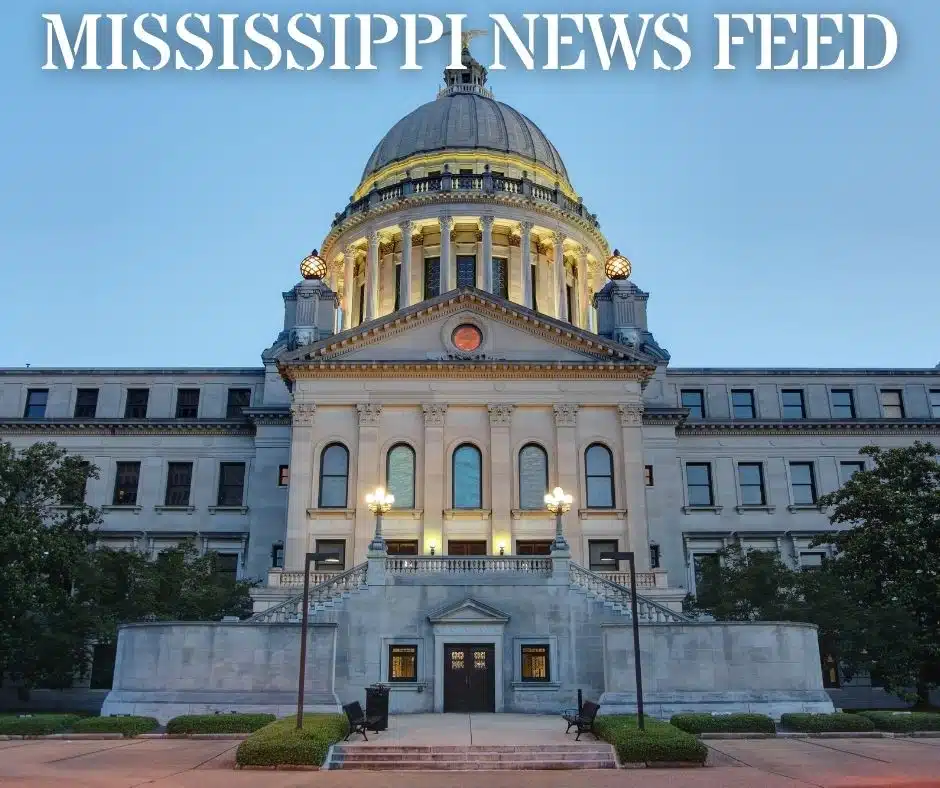
The Gulfport-Biloxi International Airport was evacuated on Thursday morning “out of an abundance of caution,” airport officials said, after receiving an emailed threat to certain transportation entities across the state.
The airport was thoroughly security swept, cleared and reopened in just over two hours. Gulfport-Biloxi is now operating regularly.
The threat was also sent to Stennis International Airport. Their staff and personnel were also evacuated until the facilities could be swept and cleared.
Any passenger whose travel was affected by the evacuation is encouraged to contact their respective air carrier.
3. Cassidy arrested in Iowa for beheading Satanic Temple statue
Former Mississippi congressional and legislative candidate Michael Cassidy was arrested this week in Iowa for beheading a statue at the state’s Capitol erected by The Satanic Temple.
Cassidy reportedly decapitated the statue and turned himself to police on Thursday. He was charged with fourth degree criminal mischief. He then started an online legal defense fund where he’s raised upwards of $20,000 as of Thursday night, according to his X account.
4. “Serial fraudster” ordered to cease offering investments into companies
According to the Mississippi Secretary of State’s office, on October 26, 2023, Secretary Michael Watson and the Securities Division issued an order against Stephone N. Patton. The SOS says Patton is a serial fraudster with multiple criminal convictions in Mississippi and Florida.
Through business filings with the SEC and Mississippi, Patton has held himself to be the CEO of various companies, including Star Oil and Gas Company, Inc., North Gulf Energy Corporation, Inc., Patton Oilfield Services, Inc., and Patton Farms, LLC.
The SOS says using these business filings and company websites, Patton claimed to have raised hundreds of billions of dollars through investment opportunities. Through investigative efforts and collaboration with the SEC, the SOS discovered none of Patton’s companies are operational, have any assets, or generate any revenues. Account records show Patton spent investors’ funds almost as soon as he received them on personal expenses. The total amount of known investments made to Patton’s fraudulent companies is over $80,000. Further, none of Patton’s investment offerings have been registered or notice filed with the Mississippi Secretary of State’s Office.
The SOS order requires Patton to cease and desist from offering investments with his companies, requiring Patton to permanently deactivate his companies’ websites to prevent any further dissemination of his false or misleading information. Patton is also ordered to pay an administrative penalty of $25,000 to the Mississippi Secretary of State’s Office for these violations, in addition to restitution owed to all his Mississippi investors.
National News & Foreign Policy
1. Congressional retirements mounting as 2024 election cycle nears
Retirement and departure announcements are piling up ahead of the start to the 2024 election cycle. The New York Times has developed a Retirement Tracker that currently shows 22 Democrats and 11 Republicans who are in Congress now will not be seeking re-election next year.
“Dozens of members of Congress have announced plans to leave their seats in the House of Representatives, setting a rapid pace for congressional departures, with more expected as the 2024 election draws closer,” the NY Times reports. “Given Republicans’ razor-thin House majority, the wave of exits has the potential to lead to a significant shake-up next year.”
You can find the tracker here.
2. Texas, Daily Wire, The Federalist sue U.S. State Department over media censorship

The U.S. State Department’s Global Engagement Center has come under fire as Texas Attorney General Ken Paxton along with The Daily Wire and The Federalist have filed a federal lawsuit alleging that the department funded technology that could “render disfavored press outlets unprofitable.” They claim that the department has helped social media – Facebook, YouTube and X (formerly Twitter) – to censor free speech while funding technologies used to censor right-leaning news outlets such as theirs.
New Civil Liberties Alliance is representing The Daily Wire and The Federalist. Paxton and the outlets claim the Global Disinformation Index (GDI), a British think tank, received a $100,000 grant from the State Department in 2021, and NewsGuard, which rates the “misinformation” levels of news outlets, received $25,000 from the State Department in 2020, according to the lawsuit.
According to the State Department’s website, the Global Engagement Center’s mission is to direct, lead, synchronize, integrate, and coordinate U.S. Federal Government efforts to recognize, understand, expose, and counter foreign state and non-state propaganda and disinformation efforts aimed at undermining or influencing the policies, security, or stability of the United States, its allies, and partner nations.
As reported by Reuters, the lawsuit cited a GDI-produced list from December 2022 that ranked The Daily Wire and The Federalist as among the 10 “riskiest sites” for news while the least-risky included The New York Times, Associated Press and NPR. Reuters notes that the lawsuit alleges such “blacklists” are reducing revenues to The Daily Wire and The Federalist along with their visibility on social media and ranking results from browser searches.
Sports & Entertainment
1. SEC releases 2024 schedules

Wednesday evening, the Southeastern Conference released the 2024 football schedules for its member schools, including of interest in the Magnolia State the schedules for Ole Miss and Mississippi State.
It is the first schedule that includes new conference members University of Oklahoma and University of Texas, bringing the conference to 16 schools. Each SEC team will play eight conference football games plus at least one required opponent from the ACC, Big Ten, Big 12, Pac 12 or major independent, each team will have two open dates.
The 2024 season will be the first year the SEC will play a schedule without divisional competition since 1991. The top two teams in the league standings based on winning percentage will play in the 33rd SEC Football Championship Game in Mercedes-Benz Stadium in Atlanta on Saturday, December 7.
2. White, Jesiolowski, Jones honored by MAIS

The Midsouth Association of Independent Schools (MAIS) in Mississippi, comprised of non-public schools, announced this week that Madison-Ridgeland Academy’s senior quarterback John White was named the 6A Player of the Year while Hartfield’s Reed Jesiolowski and Hartfield Chris Jones were named the MAIS 6A Offensive and Defensive Players of the Year, respectively.
All three have committed to play college football at the University of Mississippi.
White is Mississippi’s all-time leader in career passing yards with 15,259 yards, a record he broke during the 2023 season.
MAIS, like the Mississippi High School Activities Association (MHSAA) for public schools, is broken down into classifications, from 1A to 6A. However, MHSAA added a 7A this season.
Markets & Business
1. Consumer retail sales up as energy, gas prices move down

The U.S. Bureau of Labor Statistics reported this week that the Consumer Price Index rose 0.1% in November after being unchanged in October. Retail sales rose 0.3% in November after rising 0.2% in October, meaning consumers continue to spend at the start of the holiday season.
The CPI or inflation rate is 3.1%, higher than the Federal Reserve target of 2% but below the 9% peak in 2022 which reached a 40-year high.
As for the energy index, BLS reported that it fell 2.3% in November after decreasing 2.5% in October. The gasoline index decreased 6% in November, following a 5% decrease in the previous month.
The index for fuel oil fell in November, decreasing 2.7%. However, the natural gas index rose 2.8% over the month after rising 1.2% the previous month. The index for electricity also rose 1.4% in November, after increasing 0.3% in October.
The energy index fell 5.4% over the past 12 months. The gasoline index decreased 8.9%, the natural gas index declined 10.4%, and the fuel oil index fell 24.8% over this 12-month span.
2. Week’s market rally continues into Friday
At close of trading on Thursday, the U.S. markets continued the week’s rally, pushing the Dow up 158 points to 37,248 while the Nasdaq and S&P also made gains, 27 points and 12 points, respectively, to close at 14,761 and 4,719.
The record high for the Dow on Thursday moved futures up 102 points.
According to CNBC, the major averages are headed for their seventh straight positive week. As of Thursday, the Dow is higher on the week by 2.8%. The S&P 500 is up by 2.5%, while the Nasdaq Composite rose 2.5% this week.
Stocks rallied after the Federal Reserve left rates unchanged this week while members look towards cuts in the new year and beyond.
The post Magnolia Mornings: December 15, 2023 appeared first on Magnolia Tribune.
…
By: Magnolia Tribune
Title: Magnolia Mornings: December 15, 2023
Sourced From: magnoliatribune.com/2023/12/15/magnolia-mornings-december-15-2023/?utm_source=rss&utm_medium=rss&utm_campaign=magnolia-mornings-december-15-2023
Published Date: Fri, 15 Dec 2023 13:00:00 +0000
Magnolia Tribune
New water rates expected in Jackson come 2024; those who don’t pay face shut off
Interim Third-Party Director Ted Henifin said this week that only about 59% of the City of Jackson’s water customers are paying their bills.
JXN Water has announced new rates and fees coming in 2024. Those who are not paying will be at risk of shut offs.
The company, which was established by federal appointed interim Third-Party Director Ted Henifin, has been overseeing the city’s water system for the better part of a year.
Officials estimated that the average cost for water in the city was $76 per month for residents. Henifin clarified that JXN water will not attempt to recoup any charges prior to November 29, 2022, and will work with those who have failed to pay since that time.
He said only about 59 percent of the city’s water customers are paying their bills.
“You can’t forgive bills, so we have to be creative in how we part that,” said Henifin in reference to Mississippi’s laws that prevent giving away water.
According to a release by JXN Water announcing the rate changes, residents in single family households with small meters that use up to 748 gallons daily would see a bill increase of roughly .30 cents per day. Research indicates that the average U.S. family uses 300 gallons per day.
SNAP customers will have a new rate tier that could lower their bill by up to .69 cents per day, on average.
“Those who need to save the most benefit from saving money by drinking tap water. This new rate structure makes water affordability possible for 12,500 JXN Water customers who receive SNAP benefits,” said Henifin in the release.
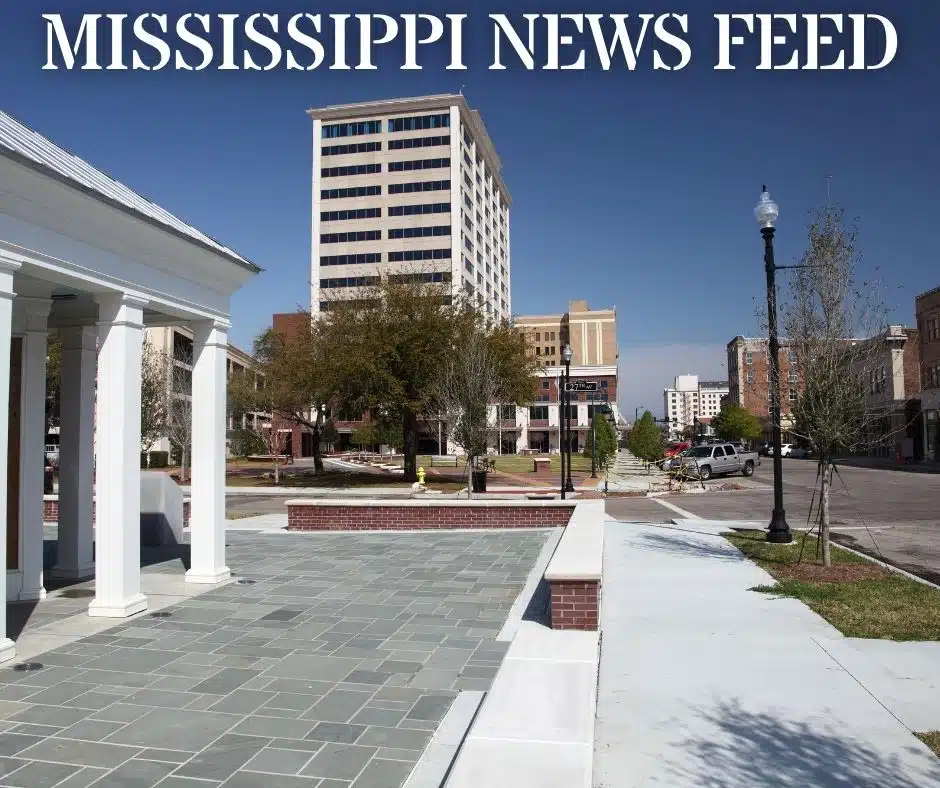
Read more about the anticipated rate changes here.
New fees will also be implemented, including a new service fee of $50, service deposit of $100, returned check fee of $25, service restoration fee of $100, and meter tampering charge of $500.
JXN Water has continued to encourage residents to use the water, with Henifin going on the record in a federal status hearing saying that the water “was safe to drink.”
More conversation regarding the billing process is expected to come at next week’s Jackson City Council meeting.
The post New water rates expected in Jackson come 2024; those who don’t pay face shut off appeared first on Magnolia Tribune.
…
By: Sarah Ulmer
Title: New water rates expected in Jackson come 2024; those who don’t pay face shut off
Sourced From: magnoliatribune.com/2023/12/15/new-water-rates-expected-in-jackson-come-2024-those-who-dont-pay-face-shut-off/?utm_source=rss&utm_medium=rss&utm_campaign=new-water-rates-expected-in-jackson-come-2024-those-who-dont-pay-face-shut-off
Published Date: Fri, 15 Dec 2023 20:00:00 +0000
-
News from the South - Georgia News Feed6 days ago
Are you addicted to ‘fridge cigarettes’? Here’s what the Gen Z term means
-
News from the South - Oklahoma News Feed6 days ago
RFK Jr. Brings MAHA to Oklahoma
-
Local News7 days ago
St. Martin trio becomes the first females in Mississippi to sign Flag Football Scholarships
-
News from the South - South Carolina News Feed5 days ago
Federal investigation launched into Minnesota after transgender athlete leads team to championship
-
The Center Square4 days ago
U.S. Senate prepares for passage of One Big Beautiful Bill Act | National
-
News from the South - Texas News Feed7 days ago
Christians sue to stop Ten Commandments law for Texas schools
-
News from the South - Virginia News Feed7 days ago
‘Hallowed ground, desecrated’: ICE sweeps at Chesterfield court draw fierce backlash
-
News from the South - Florida News Feed6 days ago
US Supreme Court allows SC to remove Planned Parenthood from list of Medicaid providers















